Socony-Vacuum Oil Company advertisement for Mobilgas: Life, 13 October 1941 (via Gallery of Graphic Design)
Bertolt Brecht: On Thinking about Hell
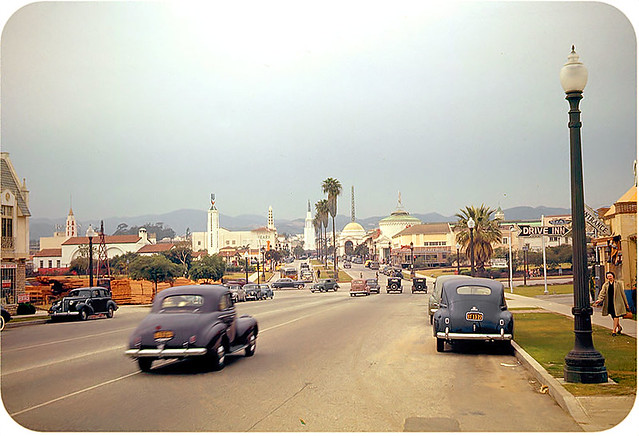
Westwood Village, Los Angeles, 1941: photographer unknown, image via Vieilles Annonces, 22 January 2011
Hell is a city much like London --
-- Percy Bysshe Shelley (1792-1822): from Part the Third: Hell, in Peter Bell the Third. By Miching Mallecho, Esq. (1839)
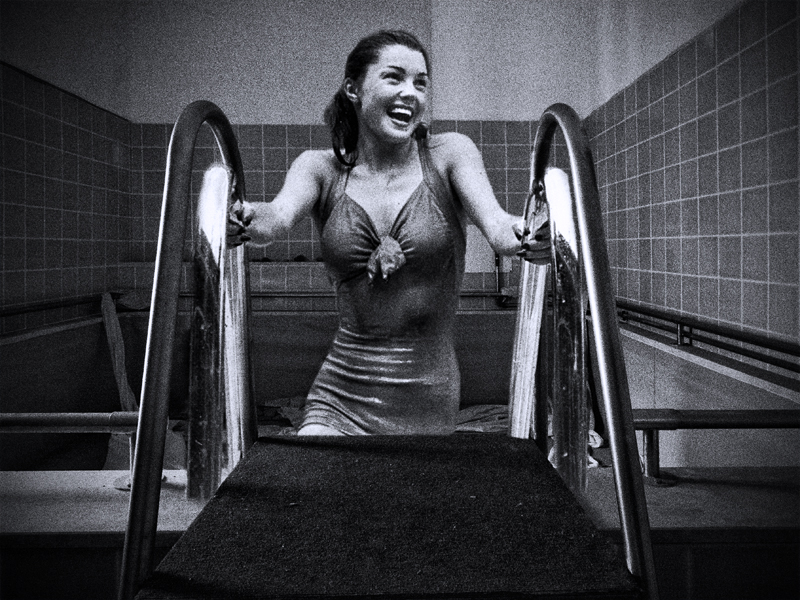
Esther Williams, Hollywood -- Frammenti da film immaginari: photographer unknown, 1941; image by Norma Gombox (aka Regivar)
August
1 [1941]: Brecht has great difficulty becoming accustomed to the new
environment, America and especially Hollywood. "There is hardly a place
where it was harder for me to live than in this showplace of easy
going." He misses Margaret Steffin: "It's as though my guide has been
taken from me just when I enter the desert."
On thinking about hell, I gather
My brother Shelley found it was a place
Much like the city of London. I
Who live in Los Angeles and not in London
Find, on thinking about Hell, that it must be
Still more like Los Angeles.
In Hell too
There are, I've no doubt, these luxuriant gardens
With flowers as big as trees, which of course wither
Unhesitantly if not nourished with very expensive water. And fruit markets
With great heaps of fruit, albeit having
Neither smell nor taste. And endless processions of cars
Lighter than their own shadows, faster than
Mad thoughts, gleaming vehicles in which
Jolly-looking people come from nowhere and are nowhere bound.
And houses, built for happy people, therefore standing empty
Even when lived in.
The houses in Hell, too, are not all ugly.
But the fear of being thrown on the street
Wears down the inhabitants of the villas no less than
The inhabitants of the shanty towns.
Bertolt Brecht (10 February 1898-14 August 1956): Nachdenkend über die Hölle, 1941, translated by Nicholas Jacobs as On Thinking about Hell in Bertolt Brecht: Poems 1913-1956, ed. John Willett and Ralph Manheim with the co-operation of Erich Fried, 1976

Westwood Village, Los Angeles, 1941: photographer unknown, image via Vieilles Annonces, 22 January 2011
Hell is a city much like London --
A populous and a smoky city;
There are all sorts of people undone,
And there is little or no fun done;
Small justice shown, and still less pity.
-- Percy Bysshe Shelley (1792-1822): from Part the Third: Hell, in Peter Bell the Third. By Miching Mallecho, Esq. (1839)

Esther Williams, Hollywood -- Frammenti da film immaginari: photographer unknown, 1941; image by Norma Gombox (aka Regivar)
August
1 [1941]: Brecht has great difficulty becoming accustomed to the new
environment, America and especially Hollywood. "There is hardly a place
where it was harder for me to live than in this showplace of easy
going." He misses Margaret Steffin: "It's as though my guide has been
taken from me just when I enter the desert."
-- Klaus Völker, Brecht Chronicle, 1971, translated by Fred Wieck, 1975; Brecht diary quotation from Bertolt Brecht: Arbeitsjournal, I, 291
Socony-Vacuum Oil Company advertisement for Mobilgas: Harold Anderson (illustrator), Life, 28 April 1941 (via Gallery of Graphic Design)
Bertolt Brecht: Contemplating Hell
Contemplating Hell, as I once heard it,
My brother Shelley found it to be a place
Much like the city of London. I,
Who do not live in London, but in Los Angeles,
Find, contemplating Hell, that it
Must be even more like Los Angeles.
Also in Hell,
I do not doubt it, there exist these opulent gardens
With flowers as large as trees, wilting, of course,
Very quickly, if they are not watered with very expensive water. And fruit markets
With great leaps of fruit, which nonetheless
Possess neither scent nor taste. And endless trains of autos,
Lighter than their own shadows, swifter than
Foolish thoughts, shimmering vehicles, in which
Rosy people, coming from nowhere, go nowhere.
And houses, designed for happiness, standing empty,
Even when inhabited.
Even the houses in Hell are not all ugly.
But concern about being thrown into the street
Consumes the inhabitants of the villas no less
Than the inhabitants of the barracks.
Bertolt Brecht (10 February 1898-14 August 1956): Nachdenkend über die Hölle, 1941, translated as Contemplating Hell by Henry Erik Butler
Contemplating Hell, as I once heard it,
My brother Shelley found it to be a place
Much like the city of London. I,
Who do not live in London, but in Los Angeles,
Find, contemplating Hell, that it
Must be even more like Los Angeles.
Also in Hell,
I do not doubt it, there exist these opulent gardens
With flowers as large as trees, wilting, of course,
Very quickly, if they are not watered with very expensive water. And fruit markets
With great leaps of fruit, which nonetheless
Possess neither scent nor taste. And endless trains of autos,
Lighter than their own shadows, swifter than
Foolish thoughts, shimmering vehicles, in which
Rosy people, coming from nowhere, go nowhere.
And houses, designed for happiness, standing empty,
Even when inhabited.
Even the houses in Hell are not all ugly.
But concern about being thrown into the street
Consumes the inhabitants of the villas no less
Than the inhabitants of the barracks.
Bertolt Brecht (10 February 1898-14 August 1956): Nachdenkend über die Hölle, 1941, translated as Contemplating Hell by Henry Erik Butler
Bertolt Brecht: Nachdenkend über die Hölle
Nachdenkend, wie ich höre, über die HölleFand mein Bruder Shelley, sie sei ein Ort
Nachdenkend, wie ich höre, über die HölleFand mein Bruder Shelley, sie sei ein Ort
Gleichend ungefäh der Stadt London. Ich
Der nich nicht in London lebe, sondern in Los Angeles
Finde, nachdenkend über die Hölle, sie mußNoch mehr Los Angeles gleichen.
Auch in der Hölle
Gibt es, ich zweifle nicht, diese üppigen Gärten
Mit den Blumen, so groß wie Bäume, freilich verwelkend
Ohne Aufschub, wenn nicht gewässert mit sehr teurem
Wasser. Und Obstmärkte
Mit ganzen Haufen von Früchten, die allerdings
Weder riechen noch schmecken. Und endlose Züge von Autos
Leichter als ihr eigener Schatten, schneller als
Törichte Gedanken, schimmernde Fahrzeuge, in denen
Rosige Leute, von nirgenher kommend, nirgendhin fahren.
Und Häuser, für Glückliche gebaut, daher leerstehend
Auch wenn bewohnt.
Auch die Häuser in der Hölle sind nicht alle häßlich.
Aber die Sorge, auf die Straße gerworfen zu warden
Verzehrt die Bewohner der Villen nicht weniger als
Die Bewohner der Baracken.
Der nich nicht in London lebe, sondern in Los Angeles
Finde, nachdenkend über die Hölle, sie mußNoch mehr Los Angeles gleichen.
Auch in der Hölle
Gibt es, ich zweifle nicht, diese üppigen Gärten
Mit den Blumen, so groß wie Bäume, freilich verwelkend
Ohne Aufschub, wenn nicht gewässert mit sehr teurem
Wasser. Und Obstmärkte
Mit ganzen Haufen von Früchten, die allerdings
Weder riechen noch schmecken. Und endlose Züge von Autos
Leichter als ihr eigener Schatten, schneller als
Törichte Gedanken, schimmernde Fahrzeuge, in denen
Rosige Leute, von nirgenher kommend, nirgendhin fahren.
Und Häuser, für Glückliche gebaut, daher leerstehend
Auch wenn bewohnt.
Auch die Häuser in der Hölle sind nicht alle häßlich.
Aber die Sorge, auf die Straße gerworfen zu warden
Verzehrt die Bewohner der Villen nicht weniger als
Die Bewohner der Baracken.
Bertolt Brecht (10 February 1898-14 August 1956): Nachdenkend über die Hölle, 1941, text from Gedichte 6, 52
Autocar advertisement for Autocar Trucks: Campbell (illustrator), Life, 6 June 1941 (via Gallery of Graphic Design)
Shell Oil Company advertisement for Shell Gasoline: Life, 23 June 1941 (via Gallery of Graphic Design)
The Texas Company advertisement for Texaco All-Night Service: Life, 23 June 1941 (via Gallery of Graphic Design)
The gracious charm and boundless enthusiasm never vary -- at home or on safari
Chrysler Corporation advertisement for Chrysler Automobiles: Life, 23 June 1941 (via Gallery of Graphic Design)
Ford Motor Company advertisement for Lincoln Automobiles: Life, 29 September 1941 (via Gallery of Graphic Design)
Ford Motor Company advertisement for Mercury Automobiles: Life, 13 October 1941 (via Gallery of Graphic Design)
Studebaker Corporation advertisement for Studebaker Automobiles: Life, 28 April 1941 (via Gallery of Graphic Design)
General Motors advertisement for Chevrolet Automobiles: Life, 23 June 1941 (via Gallery of Graphic Design)
Emergency Exit
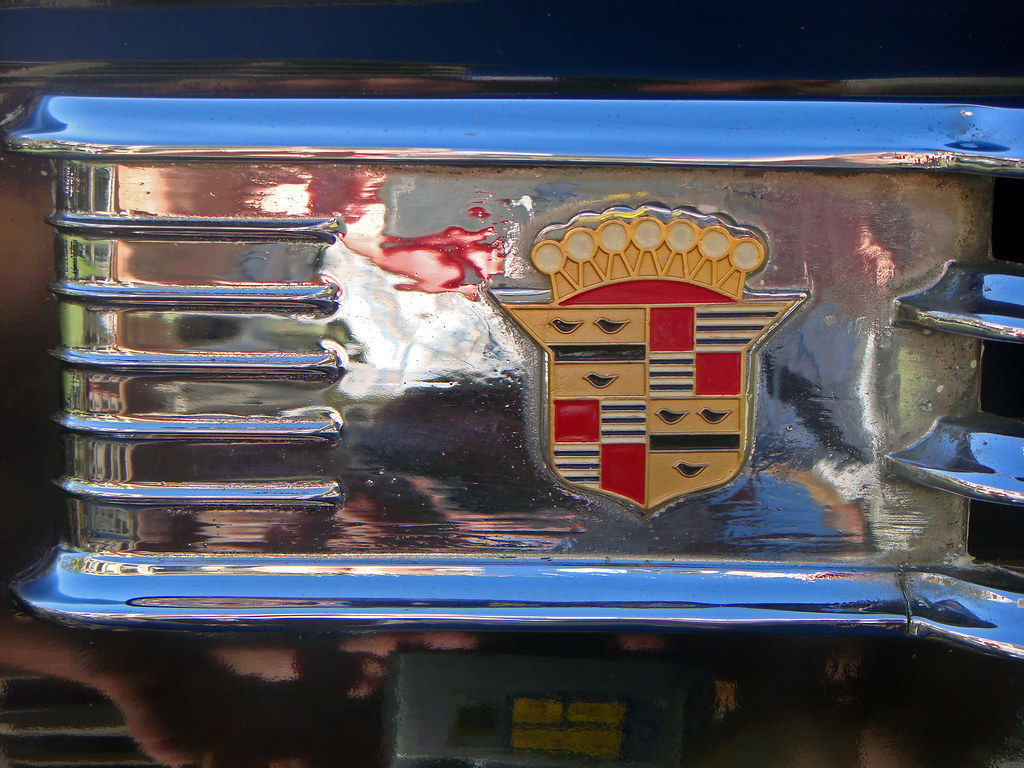
16e 1941 Cadillac Series 62 Coupe -- Owned by Clark Gable and Carole Lombard -- Side Crest (E): photo by Kansas Sebastian, 10 October 2010
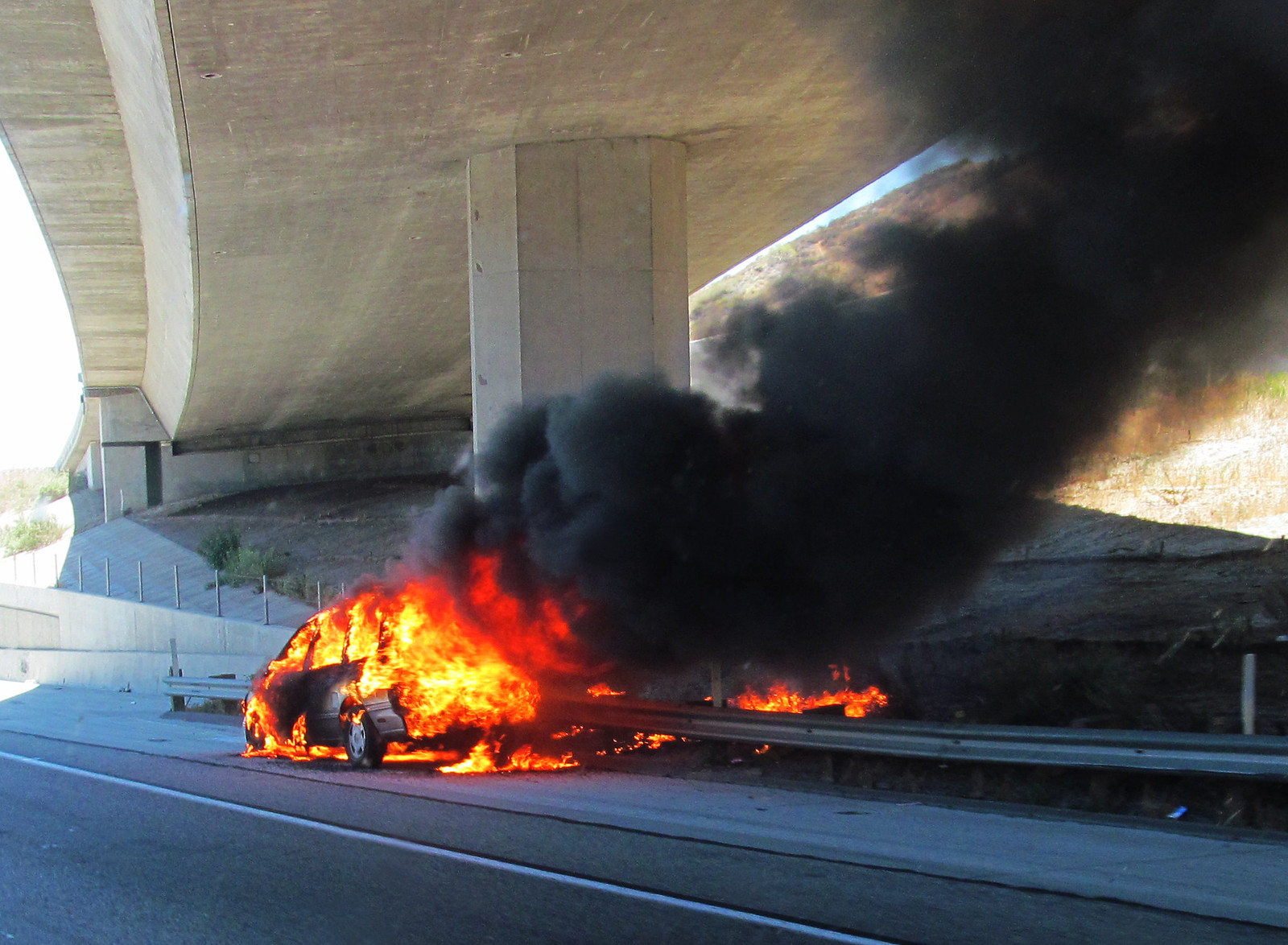
Freeway Fire, I-5 South, Santa Clarita: photo by rocor, 2 July 2014
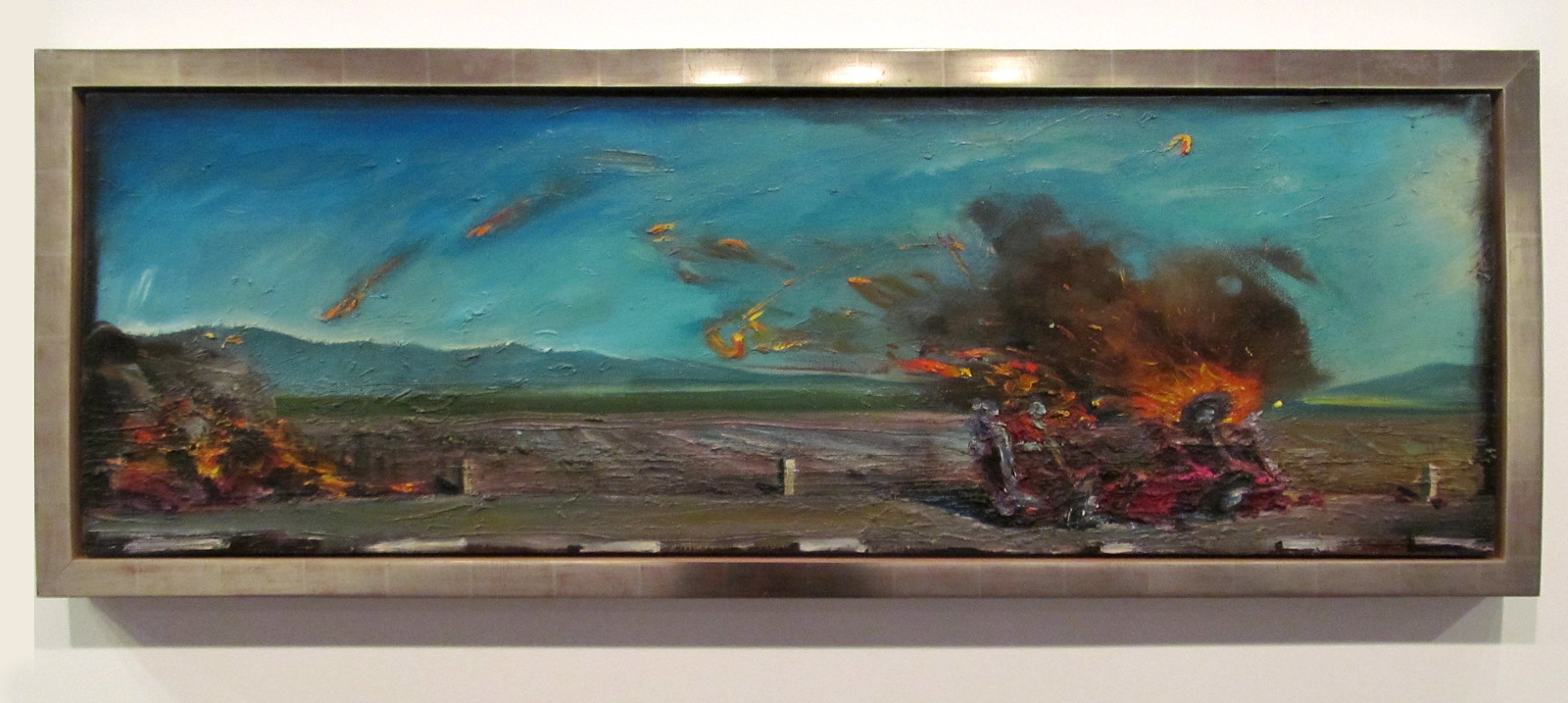
West Coast Crash: Carlos Almaraz (1941-1989), 1982, oil on canvas; photo by rocor, 20 November 2012 (Collection Elsa and Maya Almaraz)
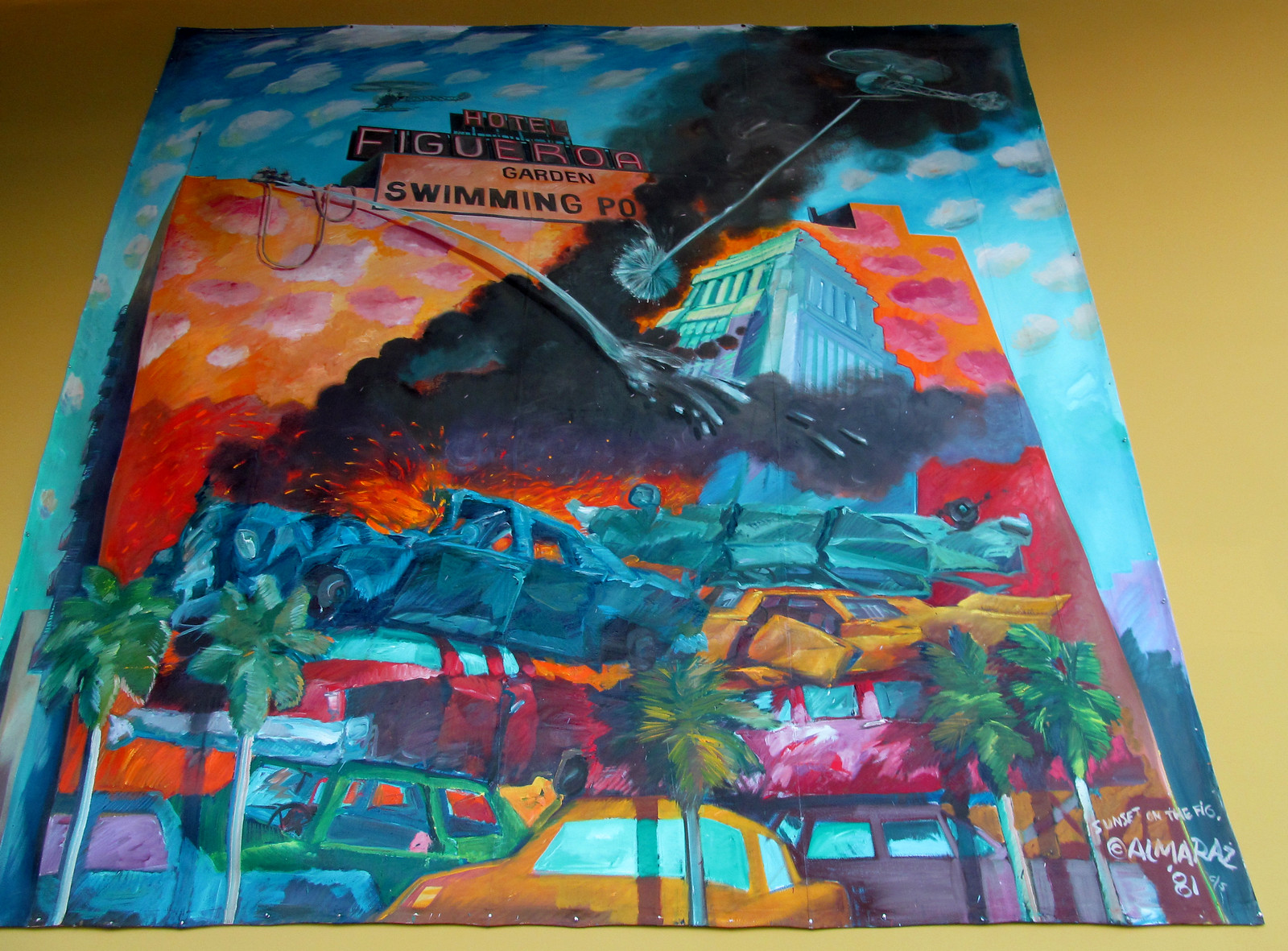
CA: Sunset on the Fig: Carlos Almaraz (1941-1989), 1981, oil on canvas; photo by rocor, 20 November 2012; image courtesy Frank Romero (Collection Elsa and Maya Almaraz)

Chrysler plant, Los Angeles. 5800 S. Eastern Ave., Commerce City, CA. Starting in 1932, the Los Angeles plant made Plymouth and Dodge trucks. By 1941, having gained Dodge cars as well, the plant was producing up to 40,000 vehicles per year.: photographer unknown. c. 1941; image via George, 10 February 2015
Progress (a Bridge to Nowhere): "the
contemplation of whether humanity is capable of preventing catastrophe"
Bridge in Macau: photo by Maitreya 8 (Mahesh Rao), 7 October 2011
For
a theoretical account of the category of progress it is necessary to
scrutinize the category so closely that it loses its semblance of
obviousness, both in its positive and its negative usage. And yet such
proximity also makes the account more difficult.
Even more than other concepts, the concept of progress dissolves upon
attempts to specify its exact meaning, for instance what progresses and
what does not. Whoever wants to define the concept precisely easily
destroys what he is aiming at. The subaltern prudence that refuses to
speak of progress before it can distinguish progress in what, of what,
and in relation to what, displaces the unity of the moments, which
within the concept ritually elaborate each other, into a mere
juxtaposition. By insisting on exactitude where the impossibility of the
unambiguous appertains to the subject matter itself, dogmatic
epistemology misses its object, sabotages insight and helps to
perpetuate the bad by zealously forbidding reflection upon what, in the
age of both utopian and absolutely destructive possibilities, the
consciousness of those entangled would like to discover: whether there
is progress. Like every philosophical term, 'progress' has its
equivocations; and as in any such term, these equivocations also
register a commonality. What at this time one should understand by
'progress' one knows vaguely, but precisely: for just this reason one
cannot employ the concept roughly enough. To use the term pedantically
merely cheats it out of what it promises: an answer to the doubt and
the hope that things will finally get better, that people will at last
be able to breathe a sigh of relief. For this reason alone one cannot
say precisely what progress should mean to people, because the crisis
of the situation is that precisely while everyone feels the crisis, the
words bringing resolution are missing. Only those reflections about
progress have truth that immerse themselves in progress and yet
maintain distance, withdrawing from paralyzing facts and specialized
meanings. Today reflections of this kind come to a point in the
contemplation of whether humanity is capable of preventing catastrophe.
The forms of humanity's own global societal constitution threaten its
life, if a self-conscious global subject does not develop and
intervene.
Theodor Adorno: excerpt from Progress, Lecture at Münster Philosophers' Congress, 22 October 1962, translated by Henry Pickford in Critical Models: Interventions and Catchwords, 1998
Bridge in Macau (the haze is from industrial polllution): photo by Maitreya 8 (Mahesh Rao), 7 October 2011
Test Drive
Ford Motor Company advertisement for Ford Automobiles: Life, 28 April 1941 (via Gallery of Graphic Design)
Climate Change: Can California cut gasoline use in half in 15 years? Probably not [extract]: Kate Galbraith, CALmatters, 4 August 2015
One sunny Saturday in Stockton, Mary Serrano climbed into the
driver’s seat of a bright-red, all-electric Chevrolet Spark. A retiree
who normally drives a 20-year-old Toyota Camry, she was curious about
the new technology on display at the local fairground.
"I feel like I’m going to outer space," she said giddily, as a company representative prepared to explain the controls.
But after the excitement of the test drive, reality set in. The
Camry, which had to be fixed after failing a smog test, will keep its
place at her Stockton home. An electric car seems out of reach, despite
the availability of rebates.
“For the moment, I don’t have the money to buy it,” she said by
phone, a few months after the fairground event. “Maybe later in life.”
Her situation suggests that for all the allure of emissions-free
vehicles, getting Californians to adopt them will take time. That in
turn creates challenges for slashing gasoline and diesel use, a goal
state leaders are championing as part of their battle against climate change.
A bill that has passed the state Senate and awaits a vote in the
Assembly seeks to halve the amount of petroleum used in motor vehicles
by 2030. It will be difficult to accomplish in such a short period.
“If we’re talking about transportation petroleum use, then the goal
probably isn’t possible,” said John German, a Michigan-based senior
fellow with the International Council on Clean Transportation. A key
problem, he said, is that people hold onto cars and trucks for a long
time, an average of more than 11 years for American cars.
The
bill has the backing of Gov. Jerry Brown, who earlier this year called
for the state to cut petroleum use in cars and trucks "up to 50
percent." Senate Bill 350 contains an unequivocal 50 percent target.
“I
wouldn’t set forth on this pathway if I believed that the targets were
unrealistic,” said Senate leader Kevin de León, D-Los Angeles, the
bill’s powerful co-author, in a recent interview.
Other parts of the legislation call for electric utilities to use 50
percent renewable energy by 2030 and for buildings to become twice as
energy efficient.
“We should be careful when we set round numbers like 50-50-50. Why
50?” said Eloy Garcia, who lobbies for the Western States Petroleum
Association, in testimony before an Assembly committee in July. “I know
they’re nice round numbers, but we should be careful about why we’ve
picked those numbers.”
The bill would take gasoline use in the state back to the 1960s,
a time when California’s population was close to half of what it is
today. It would not only help cut greenhouse gas emissions, a priority for the state,
but also reduce the fine particles and smog-forming gases that
contribute to unhealthy air above some California cities, including Los
Angeles, Bakersfield and Fresno.
“The primary driver of this target was air quality,” Stanley Young, a
spokesman for the Air Resources Board, the state agency overseeing air
quality and climate change policy, wrote in an e-mail.
The ARB would oversee the programs, creating a point of controversy
because industry groups perceive it as high-handed, even as
environmentalists cheer it on. Petroleum lobbyists and other opponents
want elected legislators to plan how the goals will be met and not the
appointed air board officials.
A general view shows oil pumping jacks and drilling pads at the Kern River Oil Field in Bakersfield, US. #AFP: image via AFP Photo Department @AFPphoto, 29 July 2015
Giotto: Drilling-down in the Subterranean Realm of the Petroleum God
Last Judgment (detail): Giotto di Bondone, 1306, fresco, Cappella Scrovegni (Arena Chapel), Padua
Last Judgment (detail): Giotto di Bondone, 1306, fresco, Cappella Scrovegni (Arena Chapel), Padua
Last Judgment (detail): Giotto di Bondone, 1306, fresco, Cappella Scrovegni (Arena Chapel), Padua
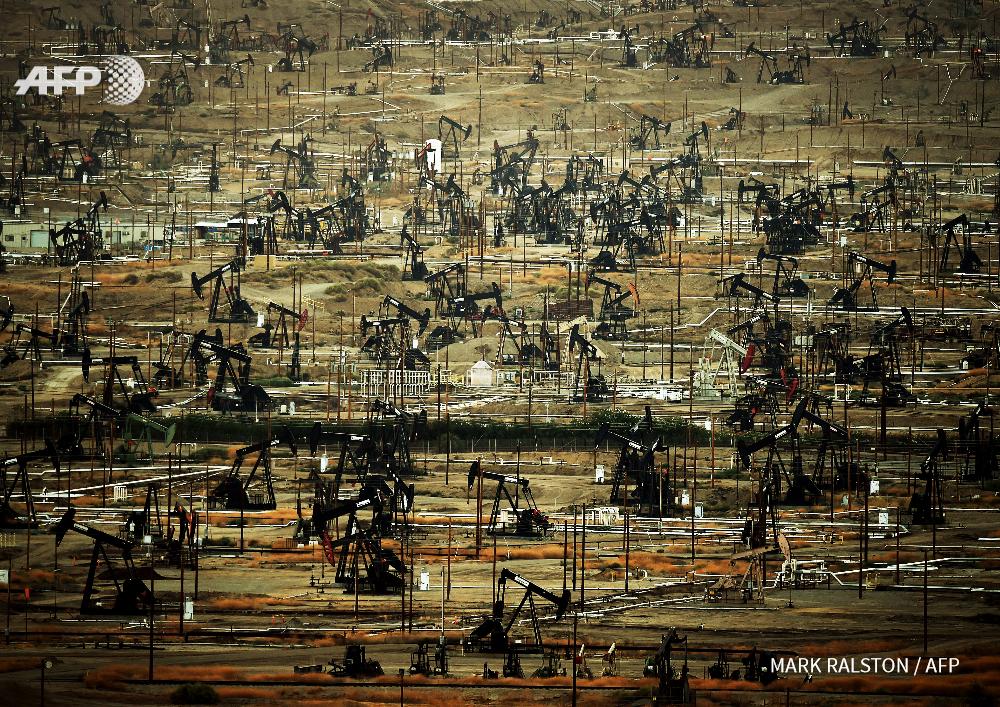




3 comments:
I love that Brecht sees Shelley as his brother. Heaven and Hell do tend to overlap, I think. When I was a kid, my brother Kevin, the eldest of my siblings, turned me on to the recording of The Threepenny Opera with Lotte Lenya starring. Another one of those primal LPs I listened to endlessly. Then, when I was a college freshman ('63-64), I helped organize a "Brechtfest" as my very conservative Catholic college. One of the program's mentors was a German faculty member named Ernst Menze (who was, I believe, a socialist refugee from Nazi Germany). Menze was apparently friends with Ms. Lenya, who actually came to our campus to participate in the program, and though I remember her, I can't remember what she performed. Thanks, Tom.
Fine sequence as ever, Tom. Fracking to Judgement Day. Good to see the Almarazes
Ich danke Ihnen, meine Brüder. Bruder Terry und Bruder Tom. Es ist alles gut.
Du hast mich im Hinterkopf legte meine alten Lehrer ... wie hieß er noch mal?
Hier finden Sie einige Filmaufnahmen von meinem Besuch in den USA.
Ich dachte, Sie könnten diese, meine Brüder zu genießen.
Die Mitglieder des Kongresses rezitiert für mich die schönsten Gedicht man sich vorstellen kann, es war positiv rührend.
Wie ich schon sagte, es ist alles gut.
Post a Comment